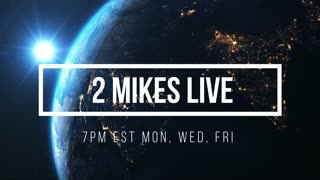Where does money come from? Fractional Reserve Lending Explained
What Is Fractional Reserve Banking?
Fractional reserve banking is a system in which only a fraction of bank deposits are required to be available for withdrawal. Banks only need to keep a specific amount of cash on hand and can create loans from the money you deposit. Fractional reserves work to expand the economy by freeing capital for lending. Today, most economies' financial systems use fractional reserve banking.
The fractional reserve banking process creates money that is inserted into the economy. When you deposit that $2,000, your bank might lend 90% of it to other customers, along with 90% from five other customers' accounts. This creates enough capital to finance $9,000 in loans.
Your balance still reflects $2,000, and the customers that the bank borrowed from also see their balances remain unchanged. If all five customers have account balances of $2,000, it will look something like this:
You and four other customers have $2,000 each, deposited in savings accounts that pay 1% per year.
If the bank can use 90% of its deposits for loans, the available capital is $9,000 (90% of $10,000).
A sixth customer asks for a loan of $1,000.
The bank borrows 10% from each of the five accounts, totaling $1,000.
There is still a balance of $2,000 in each account ($10,000 total between the five accounts).
The bank essentially created $1,000 and lent it to the borrower at 5% per year.
You receive interest payments of 1% per year on your $2,000, and the bank pockets the difference of 4% as profit.
When you create an account at a bank, in the contract, you agree to allow that bank to use a percentage of your deposits as loans to other bank customers. This doesn't mean you don't have access to the money you deposited; it only means that if you want to remove more than the percentage a bank keeps on hand, such as the entire balance, from the account, the bank will need to access funds from somewhere else to give you your balance.
#banking #crypto #blockchain #bitcoin #ethereum #gold #finance
-
 LIVE
LIVE
Edge of Wonder
3 hours agoCIA Remote Viewed Jupiter, New Spider-Man Mandela Effect & Weird News
645 watching -
 LIVE
LIVE
vivafrei
35 minutes agoSCOTUS Leaves Immunity Hanging! Rebel News SHOCKS Canadian PMs? Trump vs. Nipple Judge & MORE!
2,386 watching -
 LIVE
LIVE
Fresh and Fit
1 day agoWho Killed JFK: The Biggest Coverup In American History With Cory Hughes
6,897 watching -
 DVR
DVR
Robert Gouveia
3 hours agoJack Smith GRILLED; Bragg's ELECTION Lawsuit; Bannon's EMERGENCY Appeal
5.58K4 -
 2:21:58
2:21:58
WeAreChange
4 hours agoTrump To Blow The Lid Off JFK COVERUP?! He Names THE AGENCY!
48.1K30 -
 22:36
22:36
Lauren Chen
2 hours agoIn Defense Of The Male Gaze? Women & The Pursuit Of Beauty
14.8K28 -
 LIVE
LIVE
2 MIKES LIVE
3 hours ago2 MIKES LIVE #81 OPEN MIKE FRIDAY!
325 watching -
 LIVE
LIVE
Talk Nerdy 2 Us
1 hour agoCyber Siege: Unveiling Global Hack Attacks and the Battle for Digital Dominion
150 watching -
 1:12:53
1:12:53
Game On!
4 hours agoIt's Feel Good Friday! Get In Here! | Sports Afternoon Espresso Shot
14.7K16 -
 1:09:19
1:09:19
Battleground with Sean Parnell
6 hours agoTarget: We the People
26.5K5